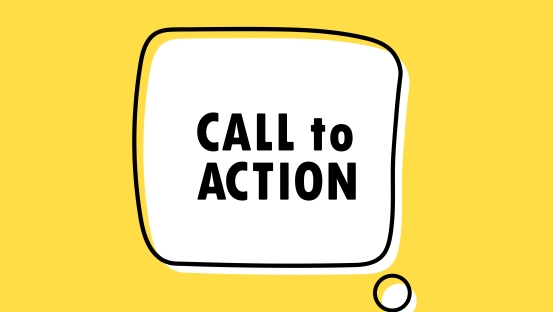Becoming a Professional Speaker: How to Start Your Public Speaking Business

Turning your passion for public speaking into a business is an exciting venture. Whether you’re driven to inspire, educate, or entertain, launching a public speaking business lets you reach audiences and create a career on your own terms. Here’s a step-by-step guide to help you build a solid foundation for your public speaking business and get you on the path to success.
1. Define Your Niche and Message
Your first step in starting a public speaking business is to determine your niche and core message. Ask yourself:
- What topics are you passionate about?
- Who is your target audience?
- What unique perspective or experience can you offer?
Focusing on a specific niche, like leadership, mental health, entrepreneurship, or personal development, helps position you as an expert and makes it easier to market yourself. Craft a concise, impactful message that resonates with your audience and sets you apart from others in the field.
2. Develop Your Brand
Building a recognizable brand is essential in the public speaking industry. Consider these key branding elements:
- Name: Decide if you want to use your personal name or create a brand name for your business.
- Logo and Tagline: Design a simple, professional logo and a memorable tagline that represents your core message.
- Brand Identity: Choose a color palette, fonts, and style that reflect your tone and resonate with your audience.
Create a professional website that showcases your expertise, your speaking topics, testimonials, and a media kit. An engaging website helps build credibility and serves as a hub where event organizers and clients can learn more about you and contact you for engagements.
3. Hone Your Speaking Skills
Investing in continuous skill development is crucial for becoming a successful public speaker. While you may already be an experienced speaker, attending workshops, joining a speaking group, or hiring a coach can refine your skills further. Consider joining organizations like Toastmasters International for practical experience or taking courses on body language, vocal delivery, and audience engagement.
4. Create Valuable Content
Position yourself as an authority in your niche by creating content that shares your insights, expertise, and unique message. Starting a blog, launching a YouTube channel, or creating social media posts allows you to build a following and show event organizers your value as a speaker.
Content ideas include:
- Blog Posts: Write about trends, insights, or tips in your niche.
- Videos: Record short speeches, Q&A sessions, or behind-the-scenes glimpses of your speaking process.
- Webinars and Live Sessions: Engage with audiences directly through webinars, which can serve as a live demo of your speaking style
5. Develop a Marketing Plan
A comprehensive marketing plan is essential for attracting clients and booking speaking engagements. Consider using these strategies to promote your business:
- Social Media: Utilize platforms like LinkedIn, Instagram, and Facebook to share insights, engage with followers, and post videos showcasing your expertise.
- Networking: Attend industry events, join professional organizations, and connect with other speakers, event planners, and potential clients.
- Speaker Directories and Bureaus: Registering with a speaker bureau can help you access larger opportunities, though bureaus typically take a commission on bookings.
- Email Marketing: Build an email list of interested followers and potential clients. Regularly send newsletters with helpful tips, updates on your speaking schedule, or new blog posts.
6. Build Your Media Kit
A media kit is an essential asset for promoting your speaking business to event organizers, press, and potential clients. Your media kit should include:
- Bio: A short professional biography highlighting your experience and achievements.
- Professional Photos: High-quality photos that reflect your brand and personality.
- Speaking Topics: A list of the topics you cover, with brief descriptions of each.
- Sample Speaking Videos: Showcase clips of your past speaking engagements or virtual presentations.
- Testimonials: Gather testimonials from clients, event organizers, or audience members to build credibility.
Your media kit should be available on your website and easy to send in digital format when reaching out to prospective clients.
7. Determine Your Pricing Structure
Deciding on your pricing structure early on is essential to building a sustainable business. Factors influencing your fees include your experience, the length of the presentation, and the type of audience or organization. Common pricing structures for public speakers include:
- Per-Engagement Fees: Charging a fixed amount per speaking event, often based on length.
- Hourly Rate: Charging by the hour for workshops, training sessions, or consulting.
- Package Pricing: Offering package deals, such as multiple workshops or a series of presentations, to give clients flexibility and value.
Research the rates of other speakers in your niche and adjust your prices as you gain experience and demand for your services grows.
8. Start Booking Speaking Engagements
Reaching out to potential clients, event organizers, and industry contacts is crucial for booking your first engagements. To begin, start locally with smaller events or organizations where you can showcase your skills. Networking with other speakers and joining online directories or platforms like SpeakerHub can also open doors to new opportunities.
Platforms like SpeakerHub offer a streamlined way to connect with event organizers and showcase your expertise to audiences actively seeking speakers. By creating a profile, you put your speaking topics, media kit, and experience in front of a broad network of event planners who value high-quality speakers. SpeakerHub helps you gain visibility without the need for endless outreach, letting your profile work for you while you focus on developing your craft.
Additionally, consider cold-pitching to potential clients by emailing them a tailored proposal, including your media kit and details on how your presentation can add value to their audience.
9. Collect Testimonials and Build Relationships
After each speaking engagement, ask for feedback and testimonials from clients and audience members. Positive testimonials are powerful tools for attracting future clients and establishing trust in your expertise. Building long-term relationships with event organizers and past clients can lead to repeat bookings, referrals, and valuable connections.
10. Diversify Your Income Streams
As your speaking business grows, you may want to explore additional revenue streams to expand your impact and income potential:
- Books and E-Books: Write a book related to your speaking topic, providing a passive income stream and enhancing your credibility.
- Online Courses: Create online courses or workshops that allow you to share your expertise with a broader audience.
- Consulting and Coaching: Offer one-on-one coaching or consulting services in your area of expertise.
By diversifying, you can build a well-rounded business that reaches your audience in multiple ways and keeps income steady during quieter times.
Final Thoughts
Starting a public speaking business requires a blend of passion, dedication, and strategic planning. By honing your speaking skills, building a unique brand, and actively marketing yourself, you can create a sustainable and successful career in public speaking. Remember, the speaking industry is highly competitive, but with persistence, a clear message, and continuous improvement, you can achieve your goals and inspire audiences worldwide.




